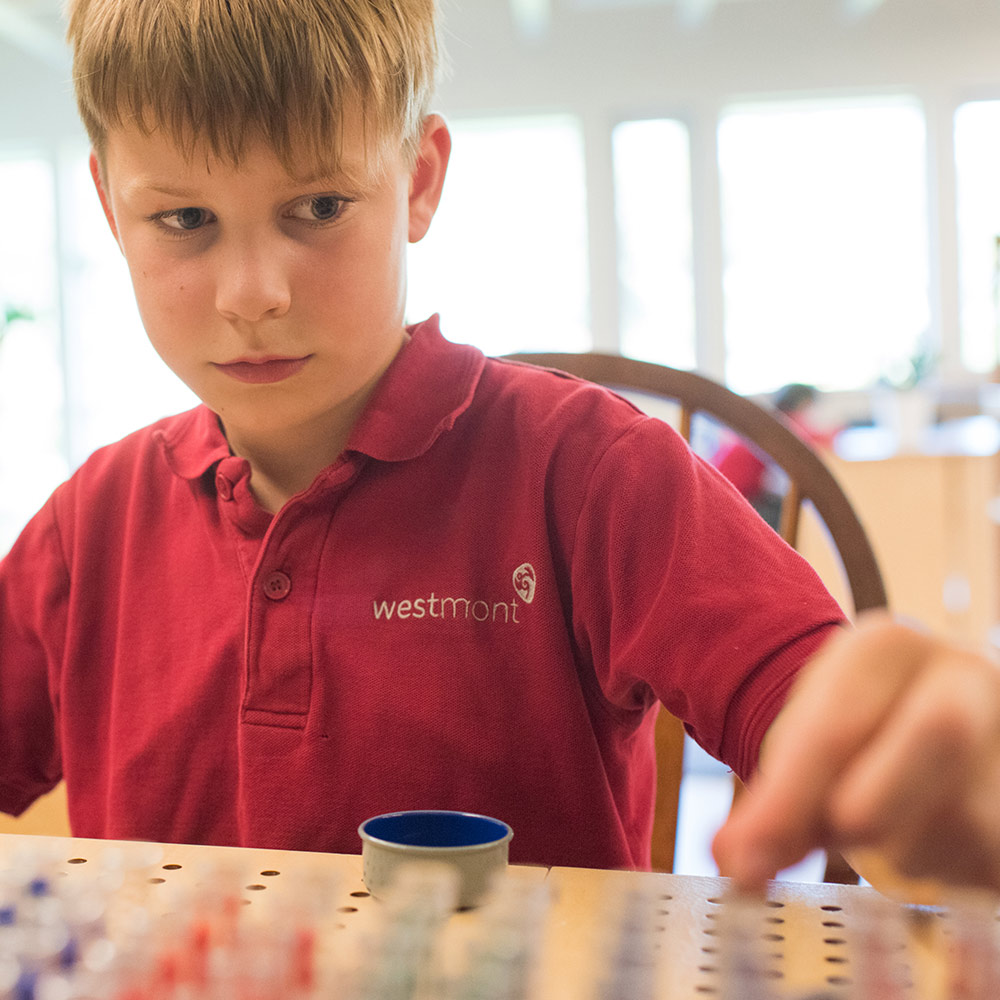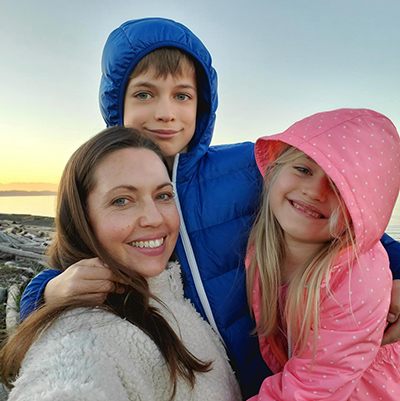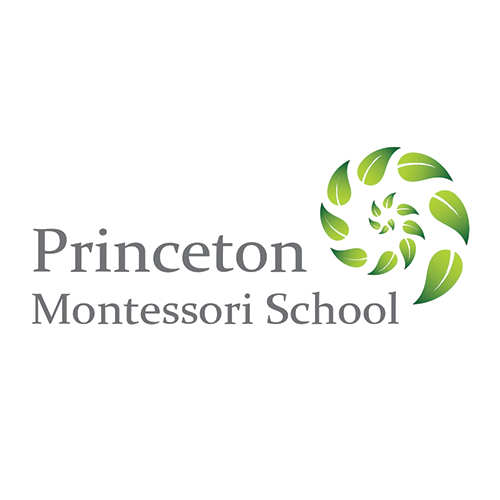Guiding students to be Leaders in Life

Upper Elementary
We typically see our students come alive with natural curiosity. They learn through child-centered, collaborative experiences in the natural world and classroom, rather than filling in worksheets that will be soon forgotten. In this way, we surpass the expectations set by the British Columbia required curriculum.
If your child is new to the Montessori method, rest assured we know how to integrate them fairly easily. The tailored nature of the program helps this process a lot!
Stories from Upper Elementary
Alan and Sarah share their views on Upper Elementary (Grades 4-6) and how a caring school community acts and feels at Westmont Montessori School in Victoria BC.
Juniper was rather unhappy at her previous school. Crispin suggested a change to Westmont Montessori School. What a difference a change in approach can make to re-ignite the love of learning.
The Montessori Elementary Model
Montessori instruction requires the active personal pursuit of many different experiences: physical, social, emotional and cognitive. The environment is carefully prepared so that the children can move independently from one area to another. Each room has a Practical Life, Sensorial, Language, Mathematics, Cultural and Art area. Freedom, independence, social development and academic learning are all important facets of the Montessori Method.
13 Key Elements of Lower Elementary
Inspires students to become independent learners who appreciate and understand their world
Increased focus on abstract understanding versus concrete learning
Greater understanding of the inter-relatedness of all curriculum areas using Montessori’s Great Lessons
Students choose their work in the same manner they learned in Early Years and Lower Elementary programs
Includes exploration days with activities such as cooking, sewing, drama, art and cultural experiences
Allows students to work at their own pace to practice and master goals, using an extensive selection of Montessori materials
Expects students to become increasingly responsible for their own learning
Individual and small group presentations are given by teachers
Individualized work plans allow students to set goals, make appropriate choices, and use their time wisely
Specialty instruction in French, Art and Music
Emphasizes the acquisition of community citizenship, virtues and leadership skills
Field trips, on-site learning garden and other outdoor experiences
A unique Marimba program in which students learn music appreciation, theory, and performance skills
Inspires students to become independent learners who appreciate and understand their world
Increased focus on abstract understanding versus concrete learning
Greater understanding of the inter-relatedness of all curriculum areas using Montessori’s Great Lessons
Students choose their work in the same manner they learned in the Early Primary program
Includes exploration days with activities such as cooking, sewing, drama, art and cultural experiences
Allows students to work at their own pace to practice and master goals, using an extensive selection of Montessori materials
Expects students to become increasingly responsible for their own learning
Individual and small group presentations are given by teachers
Individualized work plans allow students to set goals, make appropriate choices, and use their time wisely
Specialty instruction in French, Art and Music
Emphasizes the acquisition of community citizenship, virtues and leadership skills
Field trips, on-site learning garden and other outdoor experiences
A unique Marimba program in which students learn music appreciation, theory, and performance skills


